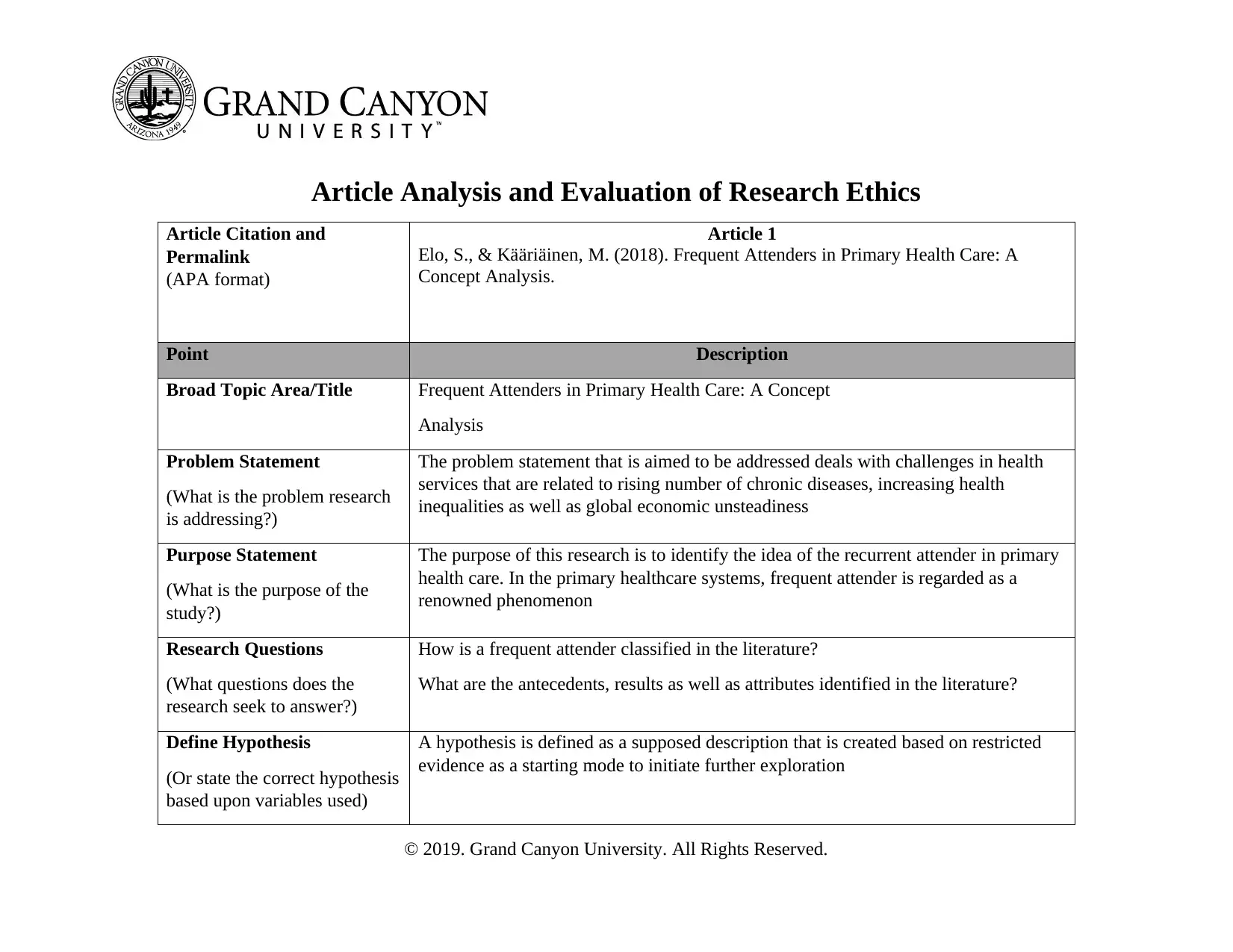Article Analysis and Evaluation of Research Ethics: Summary Report
VerifiedAdded on 2022/09/24
|3
|481
|204
Report
AI Summary
This report presents an analysis of an article focusing on frequent attenders in primary health care, examining the research's ethical considerations. The article, by Elo and Kääriäinen, explores the problem statement, which addresses the challenges of rising chronic diseases, health inequalities, and economic instability. The study aims to define the concept of frequent attenders and investigates research questions related to their classification, antecedents, and attributes. The methodology includes content analysis of literature, with data drawn from databases such as MEDLINE and Scopus. Key ethical considerations include ensuring no harm to participants and maintaining data privacy. The analysis also identifies limitations, such as the amount of data available. The report evaluates these ethical aspects, including the sampling method, data collection, analysis, and publication of results, providing rationale and support for the evaluation to assess the integrity and trustworthiness of the research.
1 out of 3










![[object Object]](/_next/static/media/star-bottom.7253800d.svg)